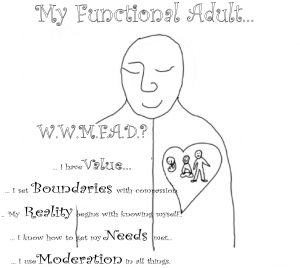
ECC
...personal growth and relationship strategies for individuals, couples, and families
Frequently Asked Questions
Q: Ok. So, what’s with the dragonflies? What does the dragonfly represent?
A. The dragonfly has represented the theme of our practice for over thirty years. In China, people associate the dragonfly with prosperity, and harmony, and as a good luck charm. Among Native Americans, it is a sign of happiness, activity, speed, and purity. The dragonfly symbolizes transformation and adaptability in life; a fluid change in the perspective of self-realization; a change that has its source in mental and emotional maturity and the understanding of the deeper meaning of life.
Q. What types of therapy can I expect?
A. We practice many therapy modes including but not limited to the
therapy modes and models listed here

Q: Have you ever worked with someone who has my problems?
A: We have pretty much worked with every kind of issue; many different age groups, sexual and gender orientations, relationship styles, various goals for treatment, addictions/recovery, healing from trauma, difficult relationships, dating problems in family, couples, individual, and group settings. If I don’t have experience in the exact problem, I usually still have the skills or resources to help you work it through and find solutions. All of the clinicians in my clinic have varied levels and types of training and experiences and we try to match you up with someone who understands and can help you with long-term solutions. If we don’t have the expertise we will be honest and help you find an experienced therapist somewhere else who does.
Q: Are you covered by my insurance?
A: While some of us are covered by many of the Employee Assistance Plans you might have through your employer, we might be limited as to when we can schedule you for an intake. Most EAPs require we offer an appointment within 3 days and so we might have to direct you back to the EAP for you to get another referral. While we have contracts with most insurance companies, not all clinicians in ECC have contracts with the same insurance companies.
You can ask us about your company and we can also do a check to see what your insurance would cover if you give us your insurance information. To be on the safe side, you can also contact your insurance and ask if we are covered, ask them questions about your deductible and what they pay if it’s out-of-network and what you would be responsible for after you’ve met your deductible.
If we are contracted with your insurance we can only charge you what they allow for the sessions scheduled.
- Blue Cross-Blue Shield
- HealthPartners
- Cigna
- Cigna EAP
- PreferredOne
- Medicare
- Aetna
- Integrated Behavioral Health
- VITAL Lifeworks
- ValueOptions/BeaconHealth
- Magellan
- MilitaryOneSource
- MHN
- Employee Assistance Companies (NOTE: In many instances, the name they go by within your company is not the same as the one we contract with):
Q. I have to have insurance? How much do you charge if I do not have or do not want to use my insurance?
A: If you do not have or do not want to use your insurance benefits, the fees are as follows:
Your counseling and a path toward healing is extremely important. As such, we realize that everyone’s budget is different, and will strive to make our counseling services available to everybody. If you are paying out of pocket, we are open to making that possible and will discuss your budget and needs with you at the time of intake.
We generally ask people to think about what they could afford in a month and then we can determine how many sessions that could cover.
Q: What hours are available?
A: Each therapist keeps their own hours and so you would have to talk to them about their hours and availability. Most of us have some evening availability (after 3:00) and some are available on weekends. There are appointments as early as 7:00 or 8:00 am, throughout the day and usually, the latest would be 6:00 or 7:00 pm. Groups run evenings and during the work day.
Q: If I’m in a relationship, should I bring my spouse/partner in with me for the intake or come alone?
A: If you are planning to come in for marital counseling, it is good for both of you to come in together at the beginning. However, there are situations where it may be best to come in on your own first, or for both of you to do individual intakes to determine the best approach and when to start seeing your counselor apart or together.
© 2019 Evolving Woman Enterprises. All Rights Reserved.